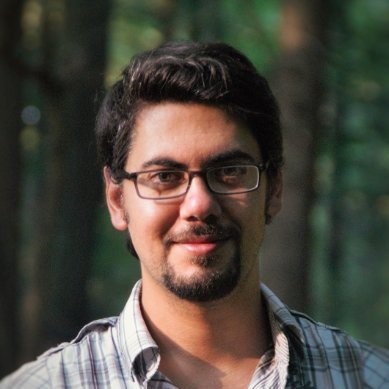In the NaSTOR project, İlker Doğan is cooperating with the company Exergy Storage to develop a cost-competitive sodium-sulfur battery for residential storage of energy from own solar panels or wind turbines. Storage is crucial for the energy transition to renewables.
 As post-doc researcher İlker Doğan explains, the storage of renewable energy can be of great value to households: "During the time your solar panels or wind turbines produce energy you are not always capable of using that energy, because you are at work for example. If you could store this energy, you can use it when you are back home in the evening." This concept is called peak-shaving. Your energy production peaks during the time that you don’t need it. When you shave this peak and store the energy, you can use it at a time when there is less energy generated.
As post-doc researcher İlker Doğan explains, the storage of renewable energy can be of great value to households: "During the time your solar panels or wind turbines produce energy you are not always capable of using that energy, because you are at work for example. If you could store this energy, you can use it when you are back home in the evening." This concept is called peak-shaving. Your energy production peaks during the time that you don’t need it. When you shave this peak and store the energy, you can use it at a time when there is less energy generated.
Batteries are considered the most efficient and robust way to store electrical energy. However, despite many advantage todays battery technologies come with a price. Therefore, İlker’s R&D is focusing on a novel sodium-sulfur battery technology, which offers perspective of being the cheapest and least dangerous. Moreover, the technology makes use of highly abundant ultra low cost basic materials. This makes the novel battery technology very suitable for residential energy storage, a world wide emerging volume market.
Tesla Powerwall
The Tesla Powerwall is a well known alternative for the battery that İlker is working on. However, it is still a rather expensive storage solution. Further, lithium batteries have the risk of thermal runaway. The sodium-sulfur battery has clear advantages in this respect to lithium-ion batteries. Sodium and sulfur both are highly abundant in the earth crust: sodium’s abundance is more than 1000 times higher than lithium. Further, the sodium-based battery will be safer. And last but not least, the technology should be able to store electricity at only a few cents per kWh, about an order lower than what is achieved with nowadays home storage batteries.
Challenges to be met
The current sodium-sulfur battery dates back to the sixties when Ford’s R&D team invented it and developed it with electrical transport in mind. Now sodium sulfur cells are used e.g. in Japan and the USA for buffering the energy of large wind farms and solar fields. But you cannot easily scale this still rather expensive technology down for in-house use application. This is because of the temperature at which these cells operate.
Currently, a sodium-sulfur battery needs to be kept at 350 °C to operate properly. But at this temperature, if the sodium and sulfur would become in direct contact a violent reaction can occur. İlker’s R&D, which is supported by the Dutch government via the ‘Topsector Energie’ investigates how to lower the cell temperature whilst letting the battery operate properly. The lower temperature will result in superior battery safety. A lower operational temperature will also drop the energy use of the battery itself, which will be beneficial for the efficiency of the battery.
İlker wants to solve these issues by making a mixture of materials for in the battery. He wants to investigate physics and chemistry that make the sodium-sulfur battery safer, cheaper and more durable. The development of the R&D of the cooperation between Doğan and Exergy Storage is rapidly advancing.
Commercialization
After İlker has answered all the research questions and has tackled all the challenges, the focus will shift from R&D to the design and the architecture of the battery. Taking everything in account, he expects that this battery could be commercialized in five years.
"Worldwide, battery research is a fast growing research topic, but only a few groups are working on it. We are among the first ones. So, in Europe or even in the world, The Netherlands is in a very strong position with the cooperation partners and research here at DIFFER. It could be a huge benefit for the Dutch economy if this novel type of battery is commercialized for the first time in The Netherlands", explains the researcher with enthusiasm.
That is why he and his colleagues are also creating proposals for future research on the sodium-sulfur battery. There are various options for further research, and there are a lot of collaboration options within DIFFER, for example with material scientists, e.g. to increase the know how on membrane technology. İlker wants to continue working in the battery research to further improve the understanding of the battery and improve it even further, so that it can really change the world with storing more renewable energy.
Go to the News page.